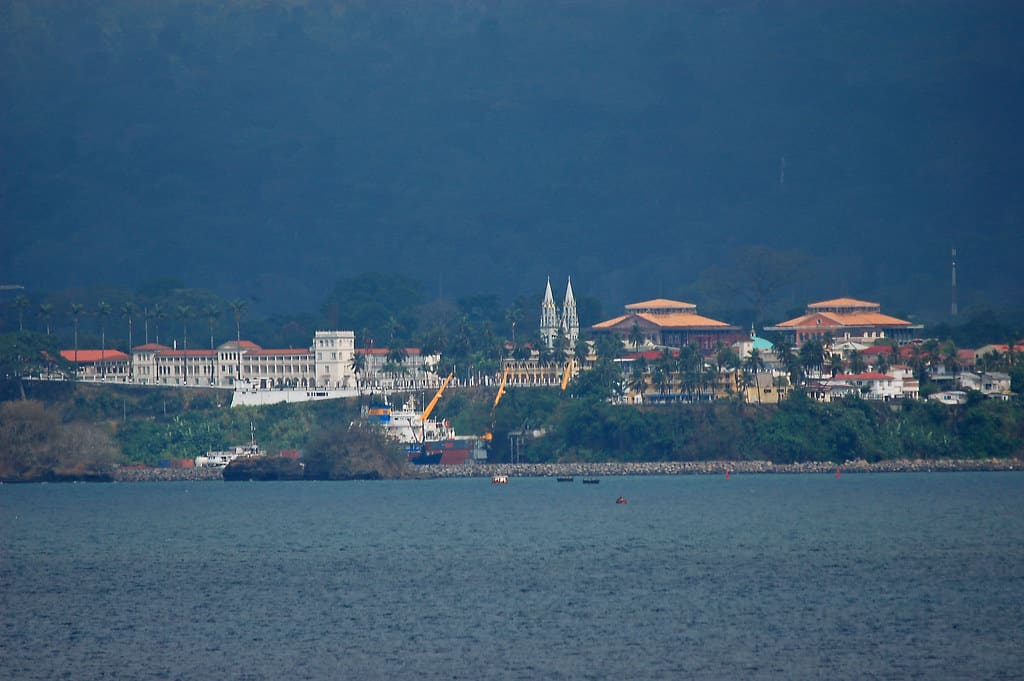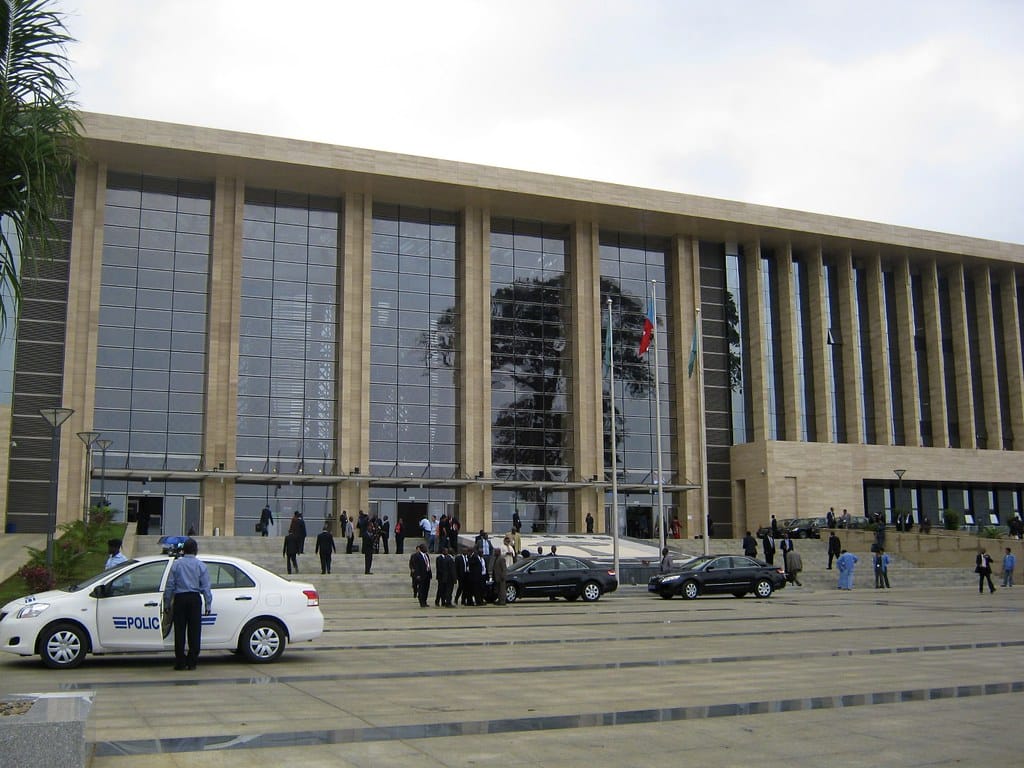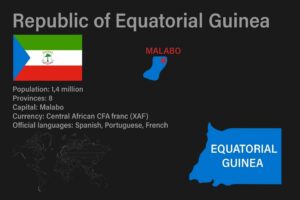Expat financial advisor in Equatorial Guinea – that will be the topic of today’s article.
I will compare some of the options available locally, alongside more portable, online, and international options like what we offer.
For any questions, or if you are looking to invest as an expat, you can contact me using this form, or via the WhatsApp function below.
It makes sense to have a portable option as an expat, as opposed to a localized one, and that is something we specialize in.
INTRODUCTION
Equatorial Guinea is a country on the west coast of Central Africa, with an area of 28,000 square kilometers (11,000 square meters). Earlier, the colony of Spanish Guinea, his name after independence raises its location near the equator and in Guinea. As of 2021, the country was a population of 1,468,777.
Equatorial Guinea consists of two parts, slope, and mainland area. A steady region consists of Bioko’s islands (previously Fernando Pó) in Guinea and anchobone, a small volcanic island, which is the only part of the country south of the equator.

The island of Biko is the northernmost part of Equatorial Guinea and is the place of the capital of the country, Malabo. Portuguese island nation São Tomé and Príncipe is located between Bioko and Annobón. The mainland area, Río Muni, borders Cameroon in the north and Gabone in the south and east.
This is the location of Bata, the largest city of Equatorial Guinea and Ciudad de la Paz, the planned future capital of the country. Rio Muni also includes several small offshore islands, such as Corisco, Elobey Grande, and Elobey Chico. The country is a member of the African Union, Francophone, OPEC and SPLP.
After Dasta, from Spain in 1968, Equatorial Guinea had rules by President for the Life of Francisco Makias-Nguema, while he was not overthrown in the coup in 1979 by his nephew Theodoro Obian Guam Mbasoy, who served as president of the country from the moment.
Both presidents were widely characterized as dictators in foreign observers. From the mid-1990s, Equatorial Guinea became one of the largest oil producers in Africa in Africa.
Subsequently, he became the richest country in the per capita in Africa, and its gross domestic product (GDP), adjusted to acquire the parity of power (PPP) per capita, occupies 43rd place in the world; However, wealth extends extremely unevenly with a small number of people who benefit from wealth oil. The country ranks 144th in the 2019 Human Development Index, with less than half of the population, having access to clean drinking water and about 1 in 12 children who are dying up to five years.
Equatorial Guinea acquired its independence from Spain on October 12, 1968, but supports Spanish as a formal language together with French and recently (as of 2010) Portuguese, is currently the only African country, where Spanish is the official tongue. It is also the widespread language (significantly more than two other official languages); According to the Cervantes Institute, 87.7% of the population has a good command of Spanish.
The Government of Equatorial Guinea is an authoritarian and has one of the worst rectors in the field of human rights in the world, consistently rating among the “worst worst” in the annual review of political and civil rights to the House of Freedom. Journalists without borders occupy President Ozhan among his “predators” of freedom of the press.
Trafficking in persons is a serious problem with human trafficking. Persons in the report to identify Equatorial Guinea as a source and country of destination for forced labor and trading on the floor. The report also noted that Equatorial Guinea “does not fully meet the minimum standards to eliminate trafficking in persons, but presents considerable efforts for this.”
Economy of Equatorial Guinea

Before independence, Equatorial Guinea exported cocoa, coffee, and wood, mainly for his colonial ruler, Spain, but also to Germany and the United Kingdom. On January 1, 1985, the country became the first unnwinal African member of the Frankivsk zone, adopting Frank CFA as its currency. National currency, Equel, was previously related to the Spanish peseta.
The opening of large oil reserves in 1996 and its subsequent operation contributed to a sharp increase in government revenues. As of 2004, Equatorial Guinea is the third-largest oil producer in sub-Saharan Africa. Its production of oil rose to 360,000 barrels per day (57 000 m3 / g), compared with 220,000 in just two years earlier.
Forestry, agriculture, and fishing are also the main components of GDP. The subsistence economy prevails. The deterioration of the rural economy with successive brutal modes reduced any potential for agricultural growth. Agriculture is the main source of employment of the country, providing income on 57% of rural households and employment by 52% of the workforce.
In July 2004, the United States Senate published an investigation into Riggs Bank, a bank based in Washington, in which most revenues of Equatorial Guinea oil revenues until recently paid until recently, as well as banana for Augean-Pinocheet Chile. The report in the Senate showed at least $ 35 million, deleted by Ozhah, his family and the regime of high-ranking officials. The president denied any offense. In February 2005, Riggs Bank paid $ 9 million in restitution for Pinochet banks, no restitution was taken against Equatorial Guinea.
From 2000 to 2010, Equatorial Guinea had the greatest average annual increase in GDP (gross domestic product), 17%.
Equatorial Guinea is a member of the Organization for Business Coordination in Africa (Okhad). Equatorial Guinea is also a member of the Central African Monetary and Economic Union (CEMAC), a subregion, which is more than 50 million people.
Equatorial Guinea tried to be confirmed as a mining initiative for transparency (EITI) of the extractive industry (EITI). The country received a candidate status on February 22, 2008. He then had to fulfill a number of obligations, including, including the commissioning of civil society and companies on the implementation of EITI, the appointment of an older personality will lead to the implementation of EITI and publication a fully expensive work plan with measurable objectives, schedule for implementation and assessment of restrictions potential.
However, when Equatorial Guinea is used to expand the deadline for completing the EITI check, the EITI Council did not agree to extend.
According to the World Bank, Equatorial Guinea has the highest GNR (gross national income) per capita per capita of any African country, 83 times more than the Gni per capita Burundi, the poorest country.
Nevertheless, despite its impressive digit of GNI, Equatorial Guinea suffered from extreme poverty caused by the inequality of wealth. Its Gini Coefficient is 65.0 – the highest worldwide.
Equatorial Guinea is expected to grow by about 2.6% in 2021, the forecast on the basis of the successful completion of a large gas project and restoring the global economy to the second half of the year. But, as expected, in the country will return to the recession in 2022 with a real decrease in GDP of about 4.4%.
According to the United Nations Man Development Report in 2016, Equatorial Guinea had gross domestic products per capita in the amount of $ 21,517, one of the highest levels of wealth in Africa. However, this is one of the most unequal countries of the world in accordance with the Jini index, with 70 percent of the population living for one dollar a day. The country ranks 145th from 189 in the United Nations Human Development Index in 2019.
Geocarboons account for 97% of the state’s exports, and this is a member of the African organization Petroleum Producters. In 2020, he faces his eighth course of recession, in contrast to endemic corruption.
Pained by financial indecision? Want to invest with Adam?
Adam is an internationally recognised author on financial matters, with over 347.8 million answers views on Quora.com and a widely sold book on Amazon



